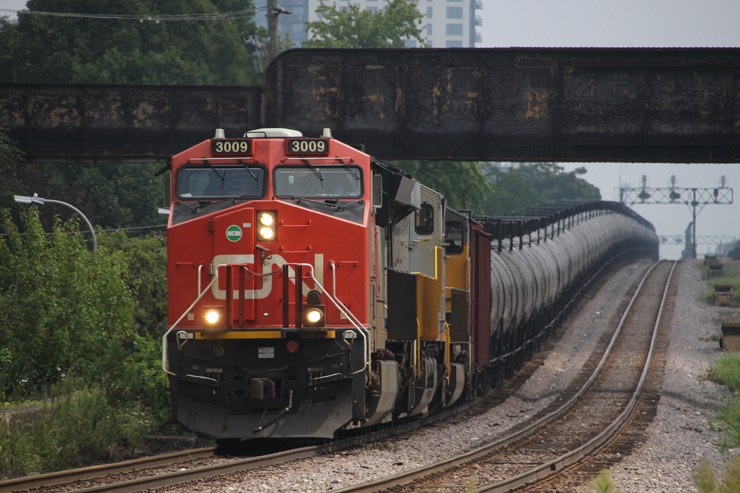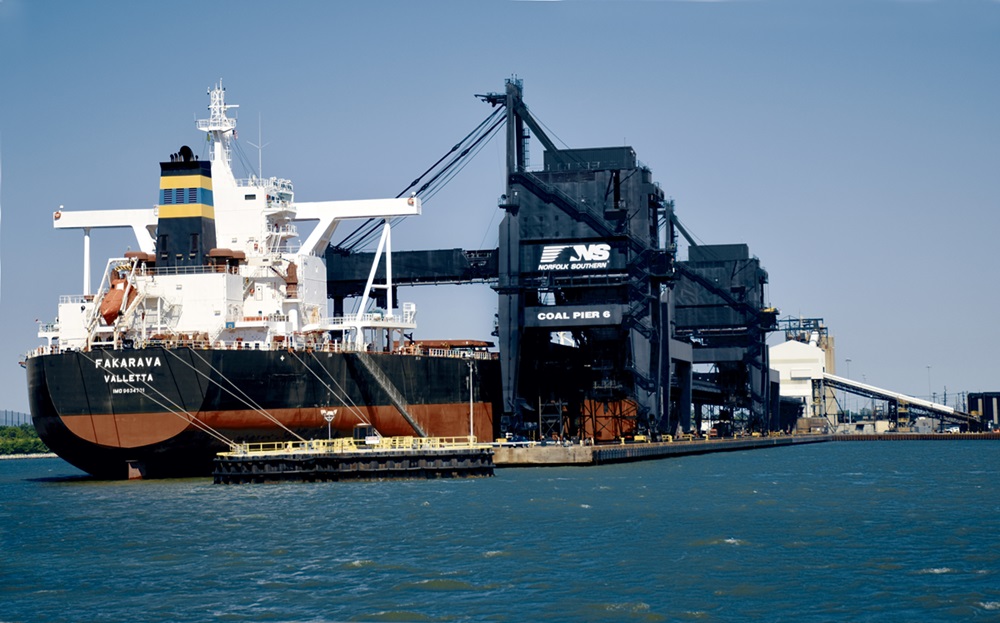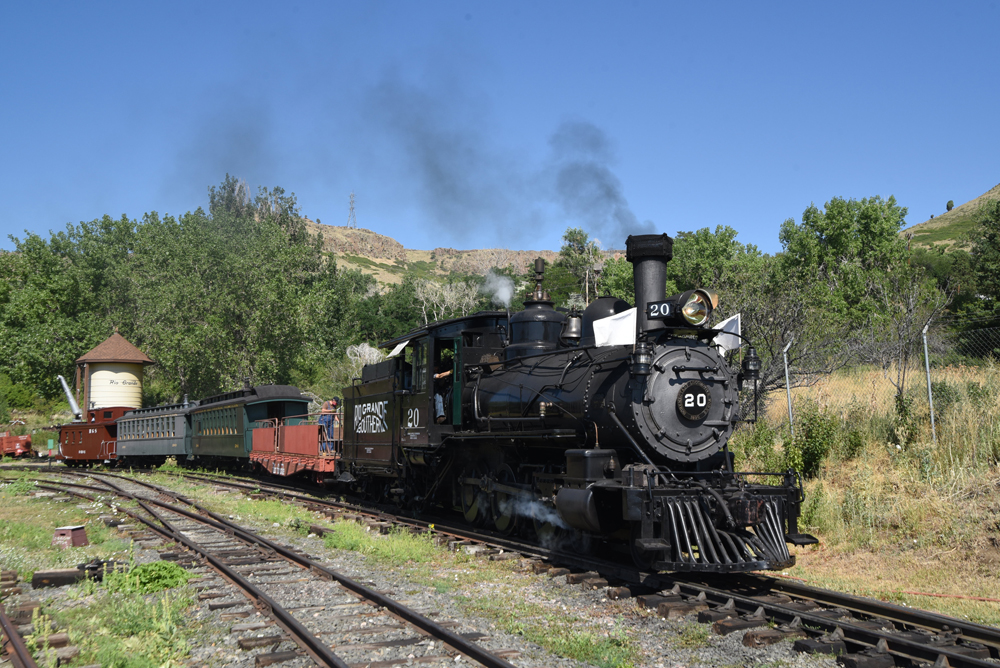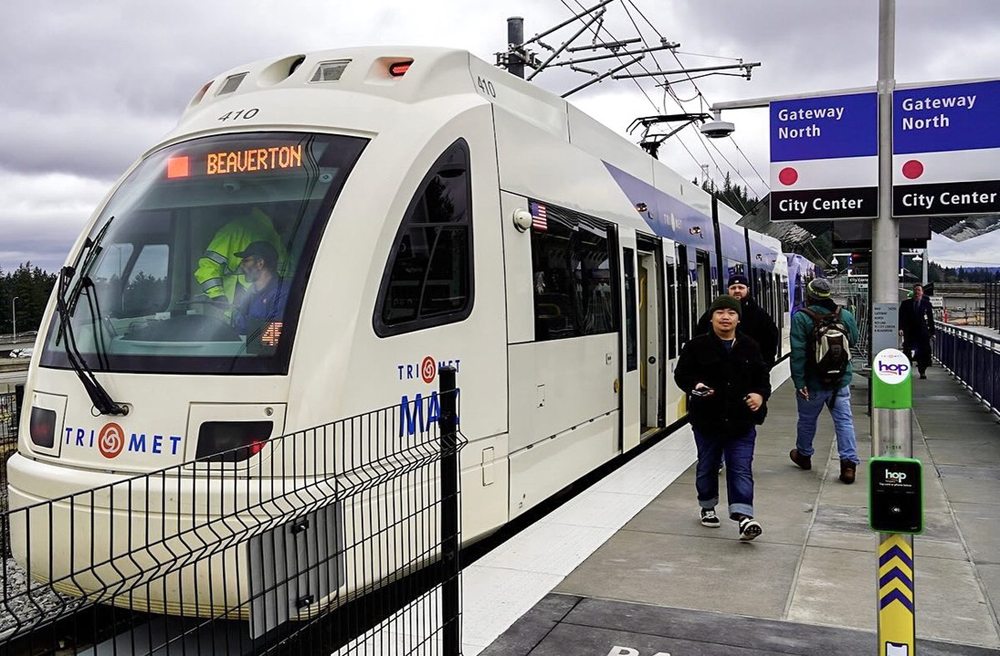The government will lease 4,400 tank cars to move up to 120,000 barrels per day by 2020, Premier Rachel Notley said in announcing the deal on Tuesday.
Shipments will begin in July from 21 loading facilities in Alberta. Most of the oil will be destined for refineries on the U.S. Gulf Coast, where it can be sold at higher prices. The balance of the oil will head to refineries on Canada’s west and east coasts.
Alberta produces about 190,000 more barrels per day than can squeeze into existing pipelines.
Currently, the cost of shipping a barrel of oil to the Gulf Coast via rail is $9 to $12 more than sending crude via pipeline. But pipeline capacity is maxed out and new and expanded pipelines are a few years away after being dealt setbacks in Canadian courts.
“We’re very proud to welcome the Alberta government as a new customer and we’re committed to moving 60 percent of their volume safely and efficiently on our network,” Janet Drysdale, CN’s vice president of financial planning, told an investor conference on Wednesday.
In some cases, CN will handle the shipments in single-line service to Gulf Coast refineries on the former Illinois Central.
The deal is worth about $1 billion to CN, Keith Reardon, senior vice president of consumer product supply chain growth, told an investor conference on Thursday. The Alberta crude will total more than one train per day, he says.
CP confirmed it reached a commercial crude-by-rail agreement with the province, but noted that like any deal, the details are confidential.
Both CN and CP sought to deflect shipper concern that crude volumes would push other commodities off their railways.
“This contract is a solid commitment and is aligned with our planned 2019 record capital investment of $3.9 billion,” CN CEO Jean-Jacques Ruest said in a statement. “We are focused on enabling growth from all of our customers including grain, agricultural, and forest products, safely and efficiently.”
“CP is committed to delivering for the entire economy,” CP said in a statement. “From grain to crude and fuel products, domestic and international intermodal to other bulk commodities, merchandise, and automotive — CP is moving the North American economy.”
CP’s crude oil traffic was running at a 100,000 annual carload rate at the end of 2018, CEO Keith Creel told an investor conference on Wednesday. It’s possible oil carloads will hit a record 120,000 this year, he says, but CP won’t allow volumes to go much beyond that to protect service levels for the railway’s long-term shippers.
CN expects its crude oil volumes, which are currently running at a rate of about 100,000 annually, to bounce back to a 140,000 carload level like the pace the railway was on at the end of 2018.
Fluctuating oil prices, changes in the price spread between Canadian and other sources of oil, and Alberta production cutbacks all contributed to a slowdown in oil shipments over the past few weeks.
The Alberta Petroleum Marketing Commission negotiated with CN and CP to secure the crew, locomotive, and track capacity necessary to handle increased oil volumes, which outside of the Alberta deal are already approaching record levels on both railways.
The province expects to generate $5.9 billion in commercial revenue and increased royalty and tax revenues from the crude by rail deal over the next three years.
The 4,400 leased tank cars will be DOT-117J and DOT-117R models that meet the latest safety standards. Some of them will carry Alberta logos.
In November, Notley first floated the idea of buying a fleet of 7,000 tank cars and 80 locomotives to help move the province’s oil to markets. The current plan was revised to include a smaller fleet of leased cars that are sufficient to handle the 120,000 barrels per day, provincial officials say.
Canadian oil exports to the U.S. via rail hit record levels last summer and are expected to double this year.















Awaiting the lawsuits from the NIMBY’s on the EJ&E complaining on tar oil passing through their backyards to reach the CN New Orleans route. What I can’t understand is why won’t Alberta build a tar oil refinery? Why do they have to ship it all the way to the Petro Coast to use their heavy crude processes? Refine it locally and ship the refined products.
George: My guess would be Trinity. Since these cars are to be leased and not purchased; it likely rules out UTLX. They’ve pretty much sat out the oil related tank car business unless the cars were actually going to be acquired by the shipper. Trinity, on the other hand, has been building 117’s not only for their own lease fleet but, for other lessors as well, such as GATX.
Greenbriar would be another possibility but; I’m not as conversant on them as the others.
The alberta tar sands oil is probably the dirtiest and heaviest CO2 emitting petroleum in the world. It is not good that the railroads are helping out.
The DOT-117R’s are rebuilds of earlier model cars. I am not sure where the DOT-117 cars are coming from.
Are the 4,400 leased cars new builds, and if so, who is building them?